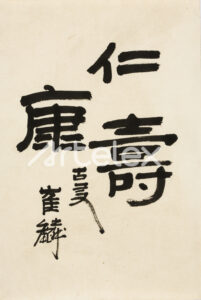Choi Rin (崔麟, May 6, 1878 – April 20, 1958) was a politician, journalist, and independence activist during the Japanese colonial period and the early years of the Republic of Korea. Born in Yesan, Chungcheongnam-do, in 1878, he received a Confucian education in his early years but later became influenced by Western education and Enlightenment ideas.
In the 1910s, Choi actively participated in the independence movement. Notably, he played a significant role as one of the 33 national representatives during the March 1st Movement in 1919. His involvement led to his arrest by Japanese authorities, resulting in a prison sentence. This solidified his reputation as an independence activist.
Choi was also active in the field of journalism. Through newspapers and magazines, he sought to promote national consciousness and spread Enlightenment ideas. As a journalist, he worked towards the development and transformation of Korean society.
However, in the 1930s, Choi’s path took a drastic turn. He began to collaborate with the Japanese Empire, actively participating in pro-Japanese activities. His cooperation with the Japanese government, particularly with the Governor-General of Korea, led to significant criticism, and his pro-Japanese actions remain a source of controversy to this day.
Choi Rin’s life is marked by the contrasting aspects of his contributions as an independence activist and his later pro-Japanese actions. This complex legacy continues to be a subject of debate in modern Korean history.
“仁壽康” can be interpreted as “Living a long and healthy life with a benevolent heart.” It conveys the wish for a person to live a morally upright life while enjoying good health and longevity.

